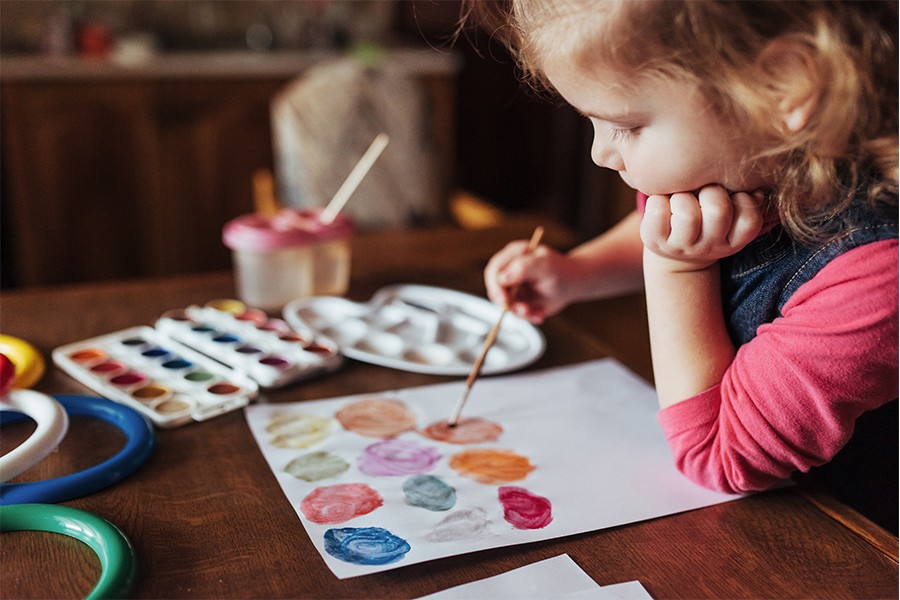5 Ways to Inspire Curiosity and Wonder among Preschoolers
Published 22 July 2021 at 14:41
Tickikids Blog Singapore > Digest > 5 Ways to Inspire Curiosity and Wonder among Preschoolers

The preschool age, which is between 2 ½ and 4 ½ years old, is a time in children’s lives when their minds are quickly developing. By this time, kids may already know how to speak in short phrases or sentences, how to exercise their fine motor skills, and how to socialize with others. This is also a period in which children experience great wonderment about the world around them. As a parent, you’ll see them noticing everyday objects, natural phenomena, and the behaviors of other people. They may also start asking you a lot of questions—and many will have to do with the whys as well as the whats.
You May Also Like: 2025 Top Preschools in Singapore
At this age, unhindered curiosity and a sense of wonderment are a good thing. According to research done by Dr. Alice Sterling Honig (2006), learning about the world around them motivates preschoolers to become inquisitive. Both curiosity and wonderment can lead children to grapple with increasingly complex ideas and emotions, as well as stoke their desire to learn. That’s why it’s important for parents to resist immediately shattering the illusion with matter-of-fact answers; instead, it’s good to encourage kids to extend their imaginations and to try filling in the blanks in themselves.
Related Article: Top Child Care & Infant Care in Singapore
There are several good takeaways for parents if they nurture their children’s curiosity. For one, they can model creative thinking, as well as both deductive and inductive reasoning. For another, they can gauge how ready their child is to compound their current knowledge in language, numerical abilities, physical abilities, and the like. A parent who wants a simple guide to keeping their preschool Singapore student engaged can follow the tips below. Here are five ways that you can keep your own child curious and full of wonder.

Photo Credit: Freepik | standret
Acknowledge Your Child’s Unique Interests
There are many things in the world that are of general interest to a preschooler, but your child may be more curious about certain things over others. It really depends on their personality and preferences—perhaps they’re drawn to animals, or to music or art. Once you’ve found what your child is naturally interested in, give them more opportunities to discover things in that field. For example, if you get the sense that your child is musically inclined, let them listen to different types of music or try out a musical toy.
Ask and Entertain Their Questions
At this point in time, your preschooler may come to you with a number of questions that demonstrate their wonderment. This may pertain to how things work, why things are the way they are, and what relationships people have with each other. Make sure to accommodate their questions—and better yet, stoke their curiosity further by asking some of your own. Try asking lots of open-ended questions, or questions that don’t necessitate simple “yes” and “no” answers. You may be surprised about how well your preschooler demonstrates their imagination!
Help Them Exercise Their Imagination
In the same vein, encourage them to stretch their imaginations with self-guided activities and creative play. Such activities can be open-ended and can prioritize exploration, rather than having a set outcome. For example, you can give your child a set of blocks and invite them to build anything they like. You can also allow them to sculpt any figure out of play-dough or create their own patterns out of a bead and bracelet set.
Change Their Routine Every So Often
This may also be a good time to introduce small changes in your preschooler’s daily routine. Do this with the rationale of eliciting pleasant surprise out of them, rather than great shock. You can let them try a new dish you’ve made and invite them to help in its preparation. Or, you can introduce a new type of soap during their bath time and let them react to the different scent, color, and texture. Alternatively, you can involve them in your own routine, such as checking up on grandparents or cousins over a video call. These little changes will have them wondering what’s next, and then looking forward to the days ahead.

Photo Credit: Freepik | senivpetro
Plan New Experiences for Them
For many things in life, there’s no better teacher than experience. That definitely applies to the lessons your preschoolers will learn when they are at their most curious and most imaginative stage. That said, broaden the number of experiences they’ve had and bring the magic of the world to them. Camp outdoors (or even indoors) so that they can imagine what it’s like to go on a small adventure. Decorate cookies or cupcakes together so that they can demonstrate their creative flair. Take them to the park, library, or zoo, and let them direct their questions to other adults. Give them the sense that the world is a much bigger place than they currently think, and they will get excited about discovering something new about it every day.
Towards Lifelong Learning for Your Child
Remember that this is the stage in their life when your child is looking at the world with so much innocence and wonderment. The more of that that they have throughout their lives, the more inclined they will be to becoming lifelong learners.
Resist the urge to lecture them or provide answers too easily. Nurture curiosity and wonderment in your preschooler—and don’t forget to join in the fun!
You Might Find Interesting: Top Montessori Preschools in Singapore